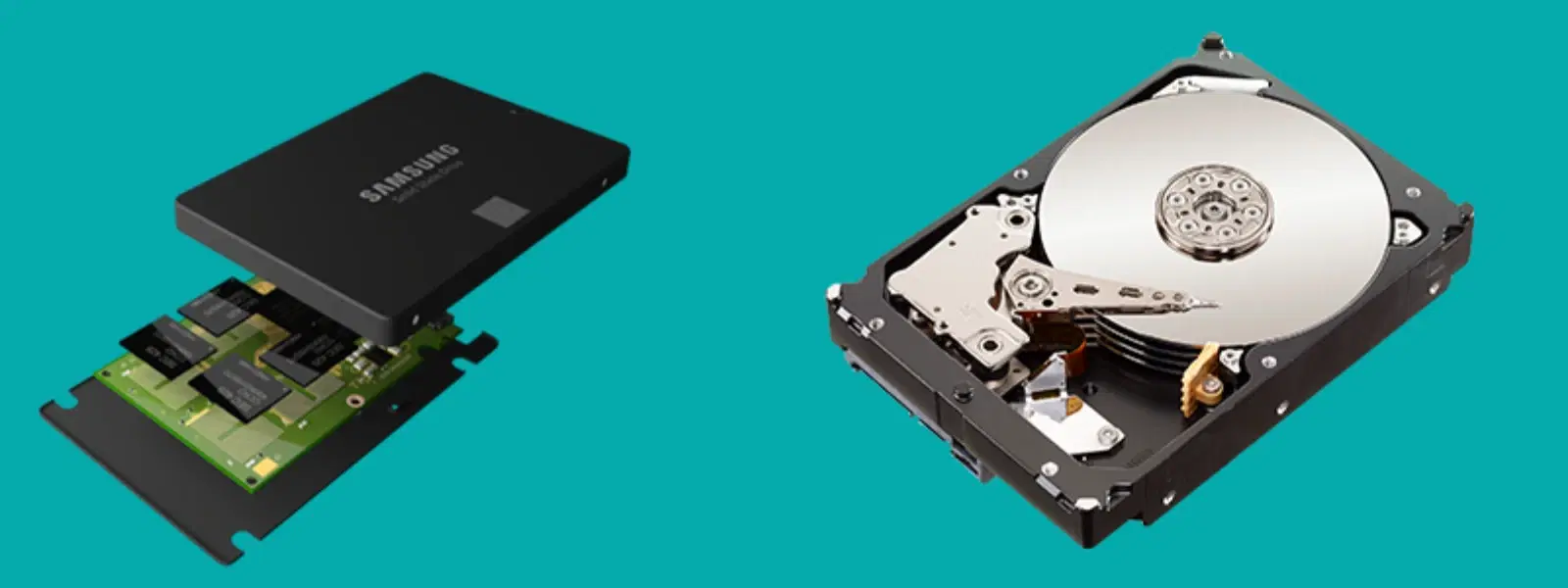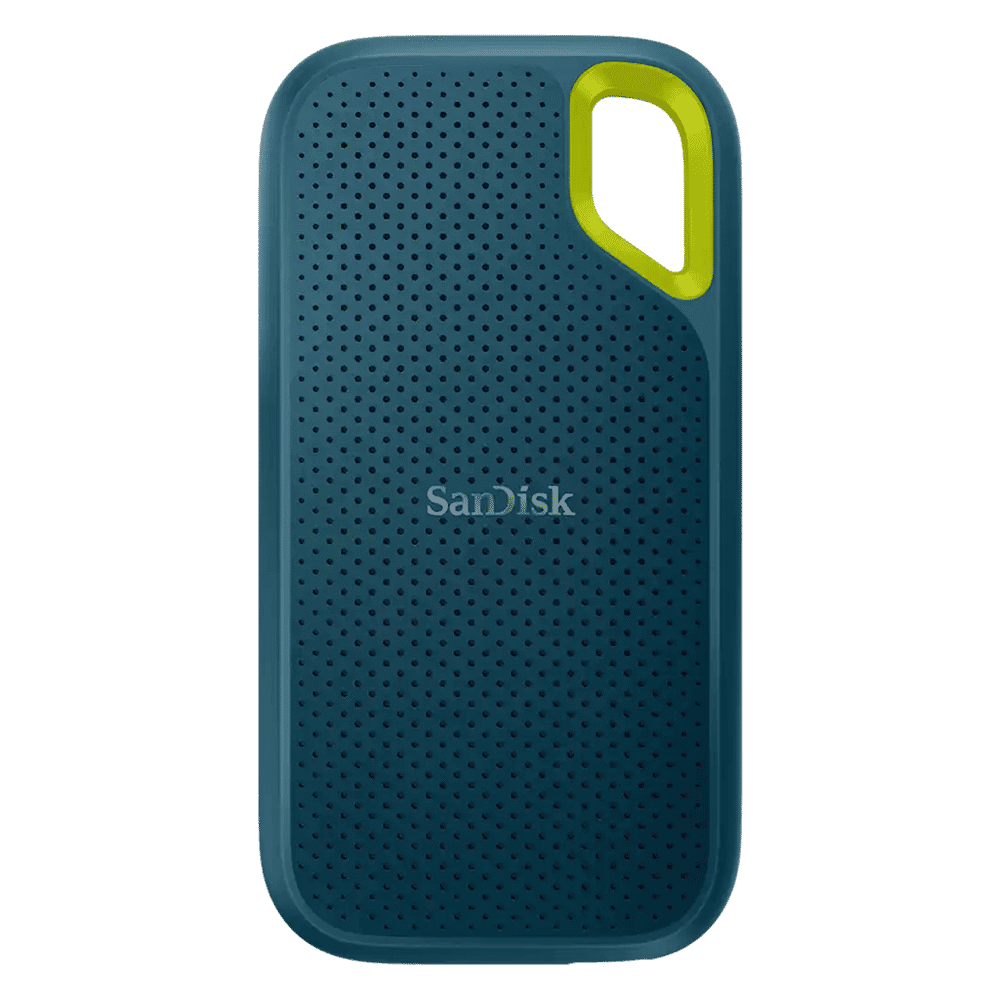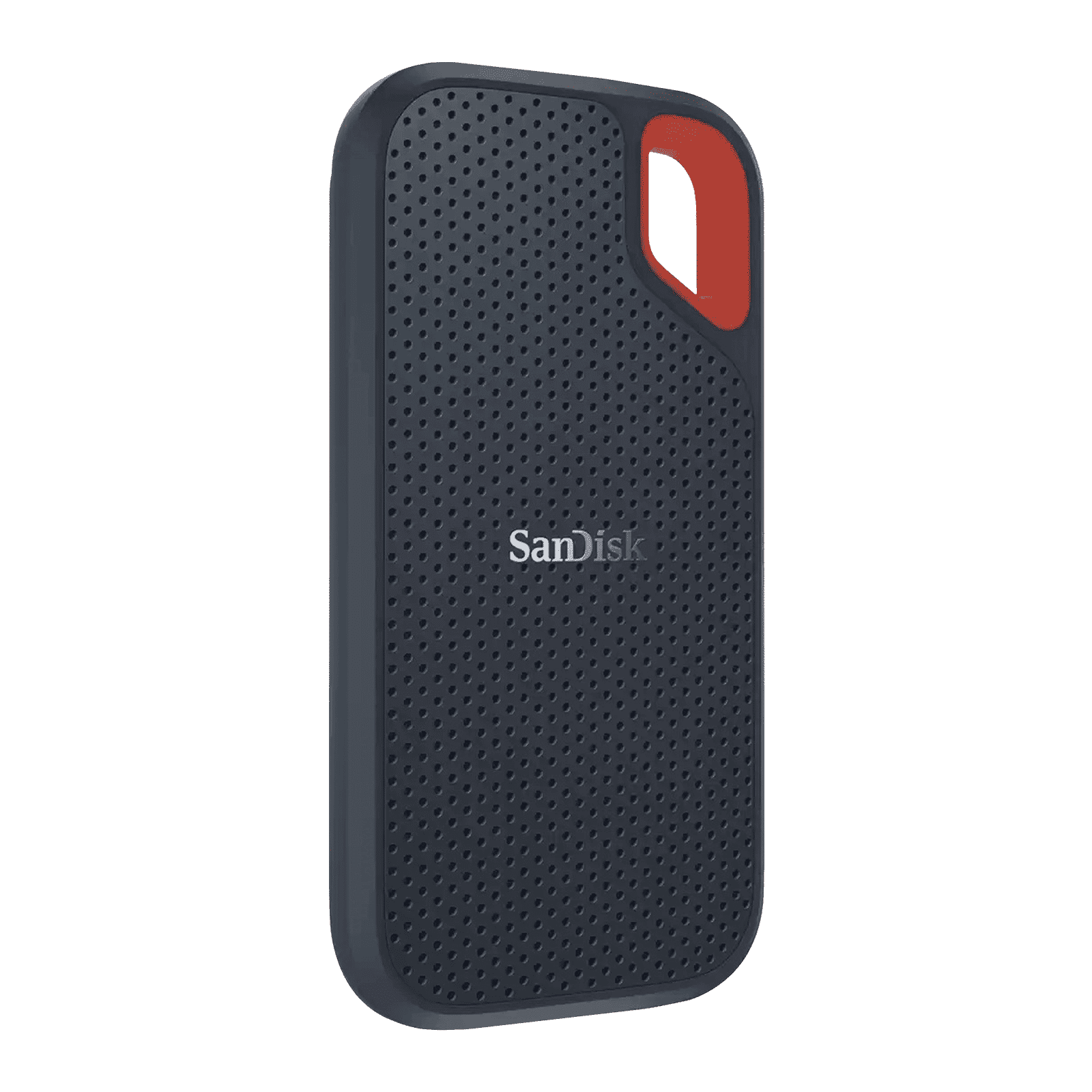
Consumer Electronics
•04 min read

Buy SanDisk Extreme 1 TB USB Type-C (3.2) Portable Solid State Drive (Drop Protection, Monterey) online at best prices from Croma. Check product details, reviews & more. Shop now!
In the ever-evolving world of data storage, two giants dominate the conversation: SSDs and HDDs. In this post, we explore the key technical differences between Solid State Drives and Hard Disk Drives, offering insights into performance, durability, power consumption, and more. With Tata Neu and Croma, discover the perfect storage solution while enjoying benefits like Express Delivery for orders placed before 6 PM and earning NeuCoins on every purchase.
Solid State Drives rely on non-volatile NAND flash memory with no moving parts, meaning they work silently and efficiently. These devices are popular in modern laptops, desktops, and servers, providing a smooth, high-speed experience for those who demand quick boot times and responsive performance.
Hard Disk Drives use magnetic spinning platters and a mechanical read/write head to store data. Although they have been around for decades and remain favored for budget systems or extensive storage needs, their technology, based on moving parts, makes them distinct from SSDs.
While SSDs use flash memory with no moving parts, HDDs depend on magnetic spinning platters combined with delicate mechanical components. This fundamental difference explains why SSDs excel in speed and durability when compared to HDDs. When comparing a solid state drive vs hard disk drive, users often notice a significant performance and reliability gap.
When it comes to the ssd vs hdd technical difference, the performance gap is noticeable. SSDs are markedly faster, especially in read/write speeds. This means that everyday tasks such as booting up systems, transferring files, or loading applications are completed in a fraction of the time it takes on an HDD.
Often, SSDs come in capacities such as 256GB, offering superb speed but sometimes less storage space compared to HDDs, which typically offer larger capacities like 1TB. Even though SSDs may be on the smaller side, they provide the performance needed for high-demand tasks, particularly beneficial if you love technology and efficiency.
With no moving parts, SSDs are naturally resistant to physical shocks and drops, making them ideal for mobile devices and everyday use. HDDs, with their spinning disks, are more susceptible to damage from impacts or vibrations, which can affect long-term reliability.
In terms of power consumption, SSDs require less energy compared to HDDs, making them a smart choice for laptops and energy-efficient systems. Lower power consumption not only helps in improving battery life but also contributes to a more sustainable approach in computing.

Buy SanDisk Extreme 500GB USB Type-C (3.2) Portable Solid State Drive (IP65 Water and Dust Resistance, Black) online at best prices from Croma. Check product details, reviews & more. Shop now!
SSD lifespan is commonly determined by a concept known as write cycles or TBW (Terabytes Written). With rapid technological advancement, modern SSDs have become significantly more durable than earlier generations, providing a trusted option for both personal and professional use.
Conversely, HDDs can face mechanical challenges over time due to wear and tear on their moving parts. Typically, under normal usage conditions, an HDD may have a shorter lifespan compared to its SSD counterpart, although many users still rely on them for archival or bulk storage purposes.
While there are myths that one type might dramatically outlast the other, longevity largely depends on usage patterns and care. Both SSDs and HDDs can serve you well if maintained properly. Practical measures such as appropriate handling and regular data backups can significantly extend their lifespan.
SSDs offer incredible speed, enhanced durability, and lower power consumption along with a compact form factor. These benefits help tech enthusiasts, families, and young professionals enjoy smoother everyday computing, reflecting the ethos of smart and customer-first shopping.
HDDs hold their position by providing cost-effective large storage solutions. They remain popular for scenarios where a vast amount of data storage is required, allowing for bulk storage of files and archival purposes without breaking the bank.
A quick comparison reveals that while SSDs trump HDDs in terms of speed and reliability, HDDs still offer considerable storage capacity at a lower price point. Understanding these trade-offs is essential when deciding on a storage solution that fits your unique needs.
If you are into gaming, video editing, or high-performance computing, SSDs are the ideal choice. Their fast boot times and energy-efficient performance make them perfect for laptops and systems that need to keep up with a fast-paced environment.

Buy SEAGATE One Touch 2TB USB (3.0) Portable Hard Disk Drive (Rescue Data Recovery Services, Black) online at best prices from Croma. Check product details, reviews & more. Shop now!
On the other hand, HDDs are excellent for bulk storage such as backups and media libraries. They are well-suited for budget systems or archival tasks where large volumes of data need to be stored without the premium price tag associated with SSD technology.
A growing trend is the hybrid approach where systems are configured with an SSD for the operating system and key applications, while an HDD is used for storing large data files. This combination ensures you benefit from the speed and efficiency of SSD technology alongside the expansive storage capabilities of an HDD.
Insight Corner: Why SSDs Are Revolutionising Storage Technology
Did you know? Studies indicate that SSDs can be up to 10x faster than HDDs in real-world performance tests. This speed boost makes them a favorite among professionals and tech-savvy users looking for a seamless, efficient computing experience.
SSD uses flash memory and has no moving parts, while HDD relies on spinning magnetic platters and a mechanical read/write head, which defines the ssd vs hdd technical difference.
No, a 256GB SSD offers less storage capacity but ensures significantly higher speed and performance compared to a 500GB HDD.
No, SSDs are entirely electronic with no moving components. This design choice contributes to their superior durability and faster performance.
In laptops, SSDs noticeably improve battery life, reduce weight, and speed up performance, while HDDs are generally heavier and tend to consume more power.
SSDs are considered better for gaming due to markedly faster load times and smoother performance, though HDDs can still be used for storing large game files.
In summary, SSDs are celebrated for their speed, durability, and power efficiency, whereas HDDs provide an affordable solution for expansive storage needs. The choice between SSD and HDD largely depends on whether you prioritize performance or capacity. With Tata Neu, enjoy a seamless shopping experience backed by genuine care and trust, all while earning NeuCoins to reward your smart choices. Don't forget to explore Croma's ZipCare support and Express Delivery options for added convenience.